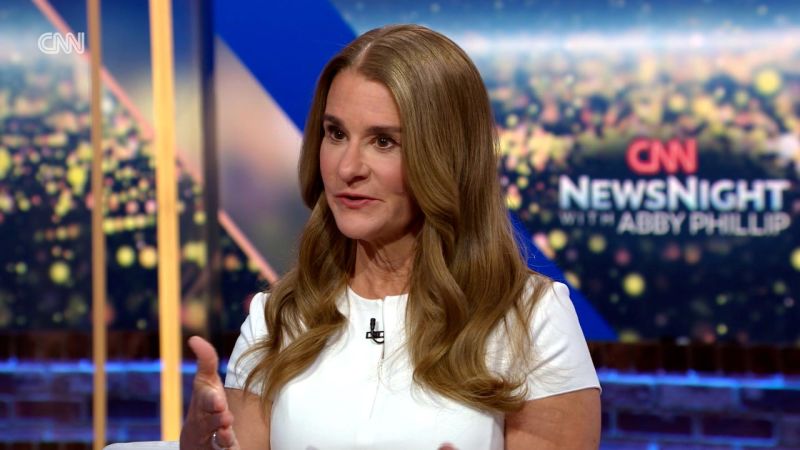The influence of wealth on American politics has become a significant topic of discussion, particularly since the Supreme Court ruling in the case of *Citizens United v. FEC*. This landmark decision has enabled wealthy donors and super PACs to inject vast amounts of money and sway into political campaigns, leading many observers to argue that the political landscape is favoring a select few with deep pockets. The implications of this shift have been profound, as the political influence of the ultra-wealthy has reportedly led to concerns about oligarchic practices within what is traditionally a democratic system.
In a recent interview with CNN’s Abby Phillip, prominent philanthropist Melinda French Gates reflected on this phenomenon, stating that the true personalities of many wealthy individuals in positions of power have become more apparent in recent years. French Gates expressed her belief that the influence of wealth is not a new occurrence but rather has long been present within certain political circles. Her remarks underscore a growing concern that the values espoused by some of today’s billionaires diverge significantly from those of the general public, altering the dynamics of political engagement.
Among those billionaires, names like Elon Musk, Jeff Bezos, Mark Zuckerberg, Warren Buffett, and Michael Bloomberg stand out, particularly in their increasing involvement in politics. Their actions have led critics to suggest that America is trending toward an oligarchic system, bolstered by the wealth of a few individuals. French Gates herself is not just known for her wealth but for her philanthropic endeavors as well. Following her divorce from Microsoft founder Bill Gates, she became a prominent figure in philanthropy, resigning from the Bill & Melinda Gates Foundation and receiving $12.5 billion in the agreement—cementing her status as one of the world’s wealthiest individuals with a net worth of $14.4 billion.
In discussing the motivations and ethics of the current billionaire class, French Gates pointed out that the values of this new wave of wealthy individuals contrast with her own. She disclosed that she has interacted with many of these individuals and observed their differences in perspective. French Gates, who co-established The Giving Pledge in 2010 alongside Bill Gates and Warren Buffett, called on the richest individuals to contribute at least half of their fortunes to philanthropic efforts. Interestingly, while numerous billionaires have signed onto this pledge, Bezos stands out as one who has not yet committed publicly.
Reflecting on the implications of extreme wealth, French Gates articulated a sentiment that resonates with many advocates for social responsibility, declaring that anyone with a billion dollars bears a moral obligation to give away a significant portion of that wealth. Her commitment to donate $1 billion through her organization, Pivotal Ventures, by 2026 underscores her dedication to advocating for women’s rights, particularly in light of recent shifts in U.S. policies affecting reproductive freedoms.
However, critics have raised alarms regarding the disproportionate influence of the ultra-wealthy in political matters, particularly during the Trump administration. French Gates has crossed party lines in her voting habits, having supported both Republican and Democratic candidates. She posited that the impact of the *Citizens United* ruling has not consistently tilted election outcomes, asserting that there is substantial financial support for candidates across the political spectrum.
When confronted with the provocative question of whether America is morphing into an oligarchy, French Gates expressed her hope that such a scenario does not materialize. Her comments reflect a desire for a balanced political landscape where the average citizen has a voice, countering the notion that the wealthiest are calling the shots.
Overall, French Gates’ insights and actions illustrate the ongoing tension between wealth accumulation and democratic ideals in America. As she articulates her vision for a better future, it is crucial to continue monitoring the intersection of wealth, philanthropy, and political influence. This ongoing dialogue will shape the American political landscape in the years to come, underscoring the importance of ensuring that democracy remains accessible and equitable for all citizens. For those interested in her perspective and the broader discussion of wealth’s role in politics, CNN’s news coverage continues to provide critical updates and analyses.



